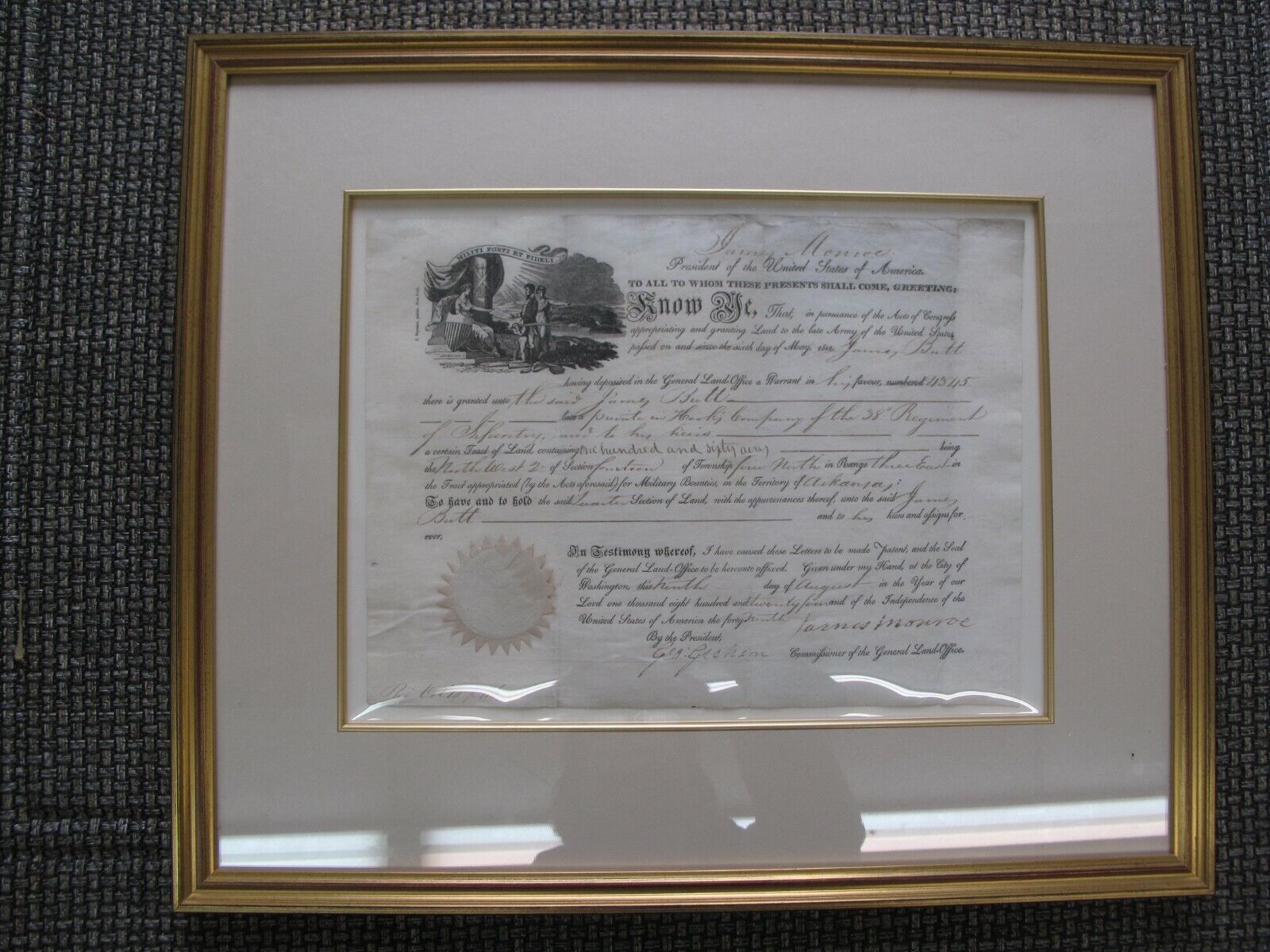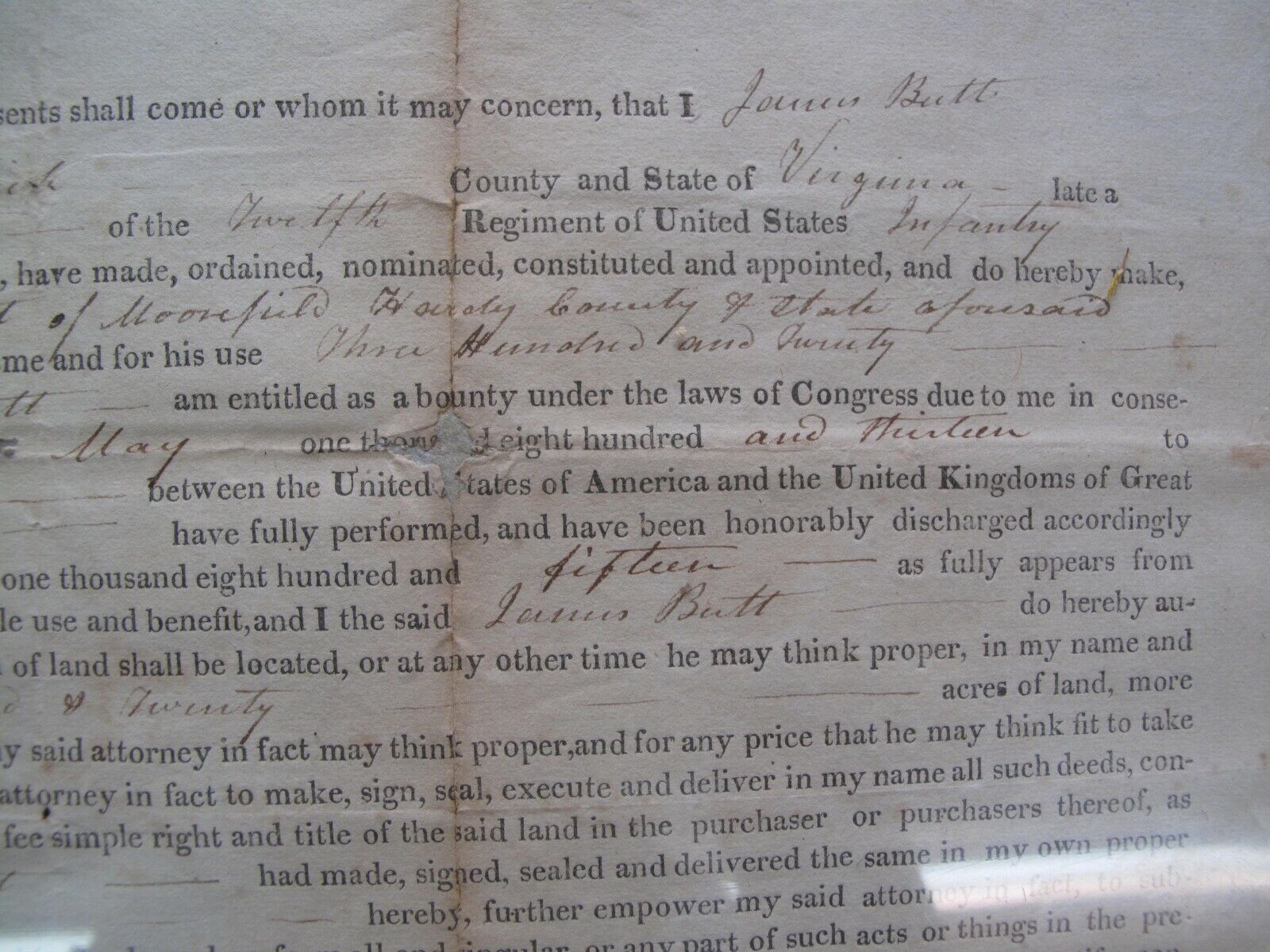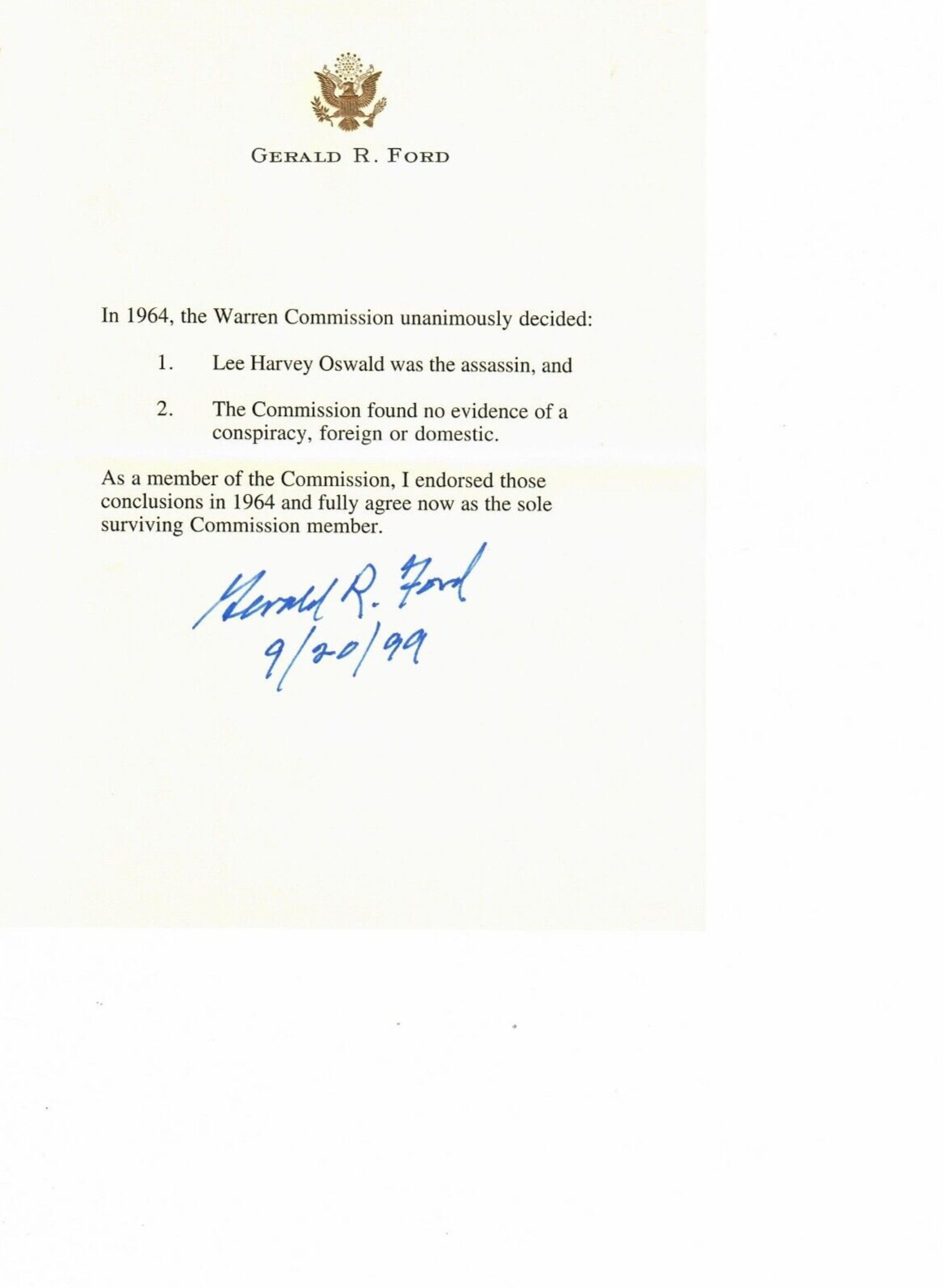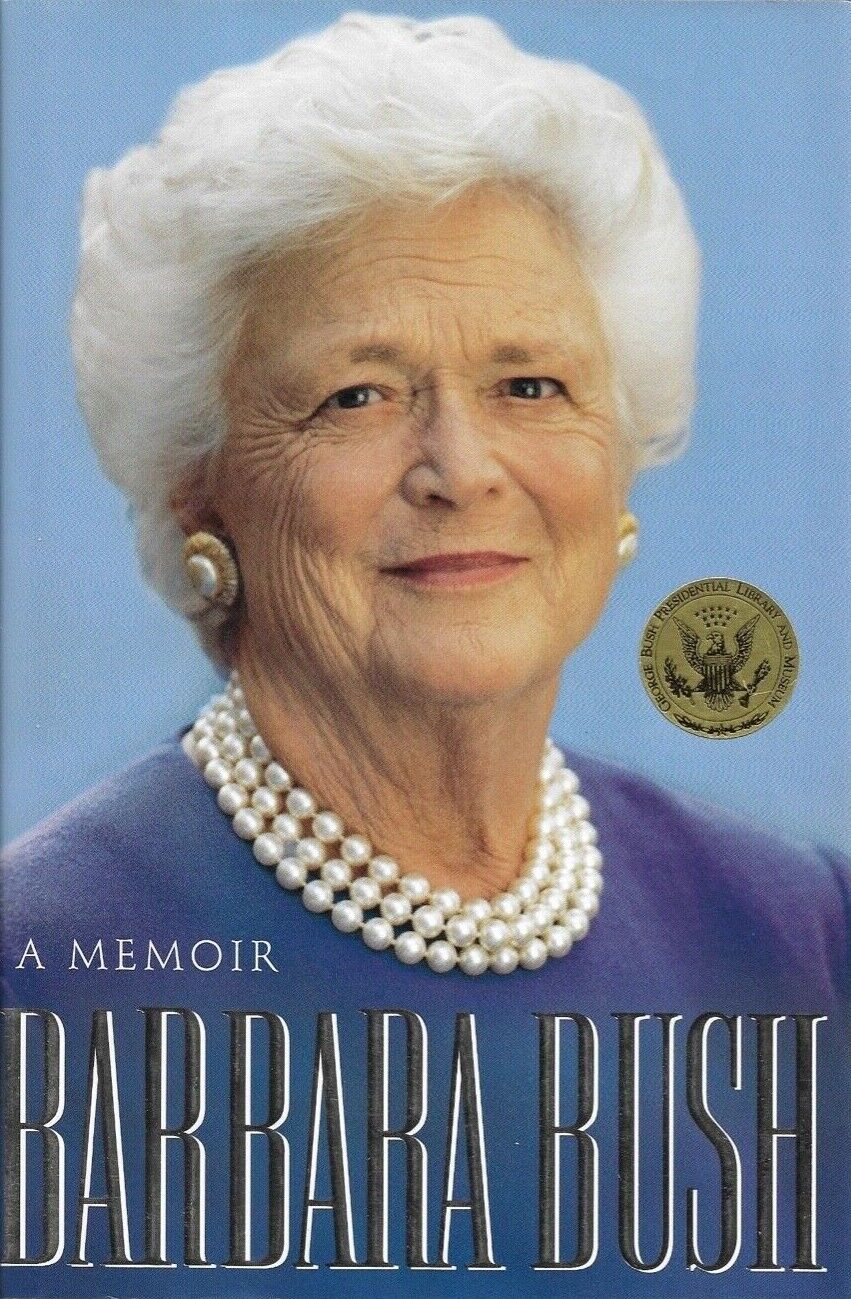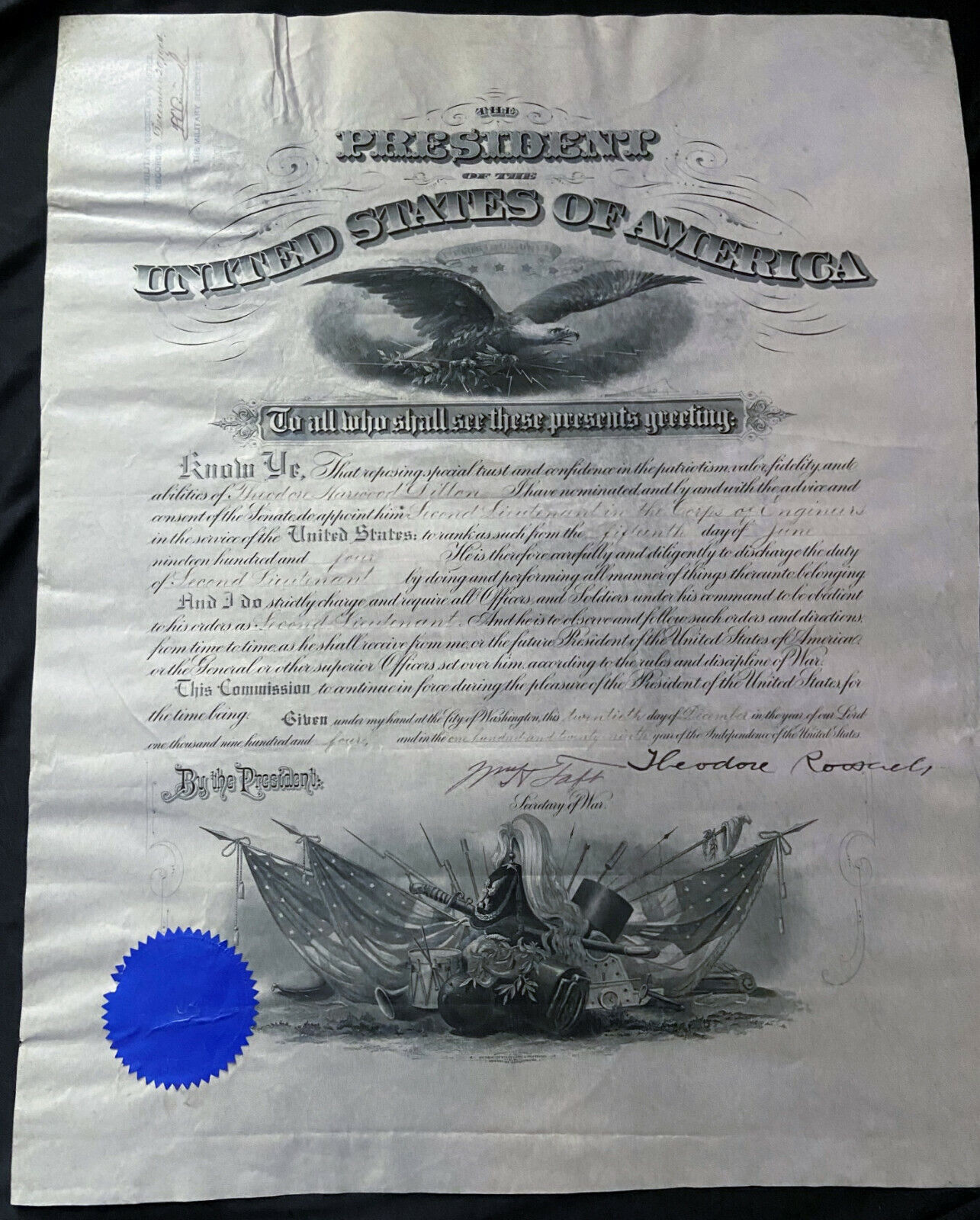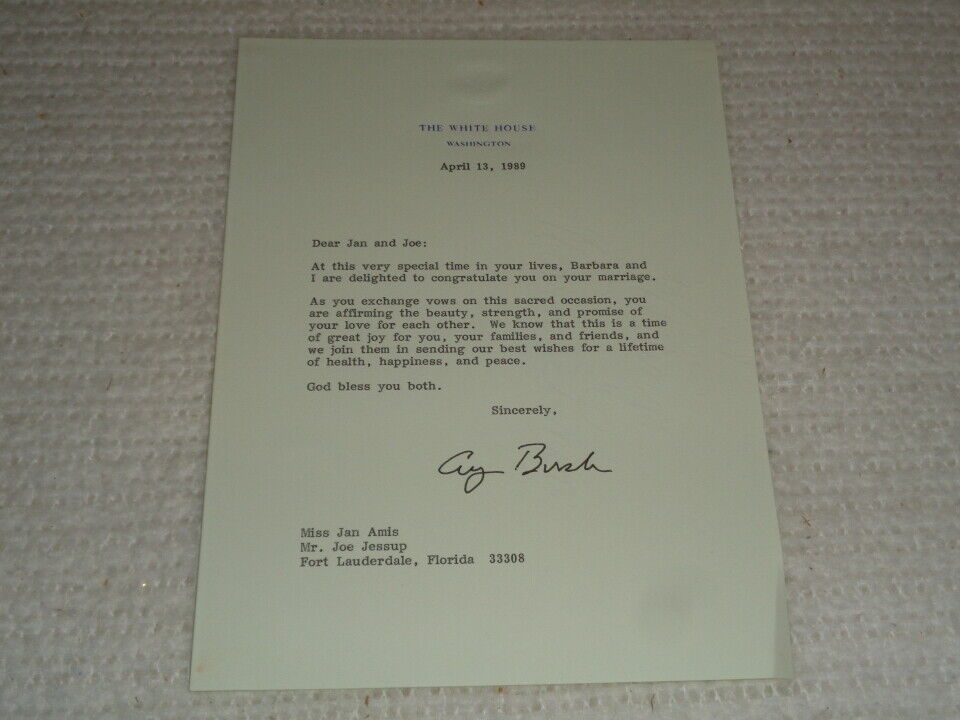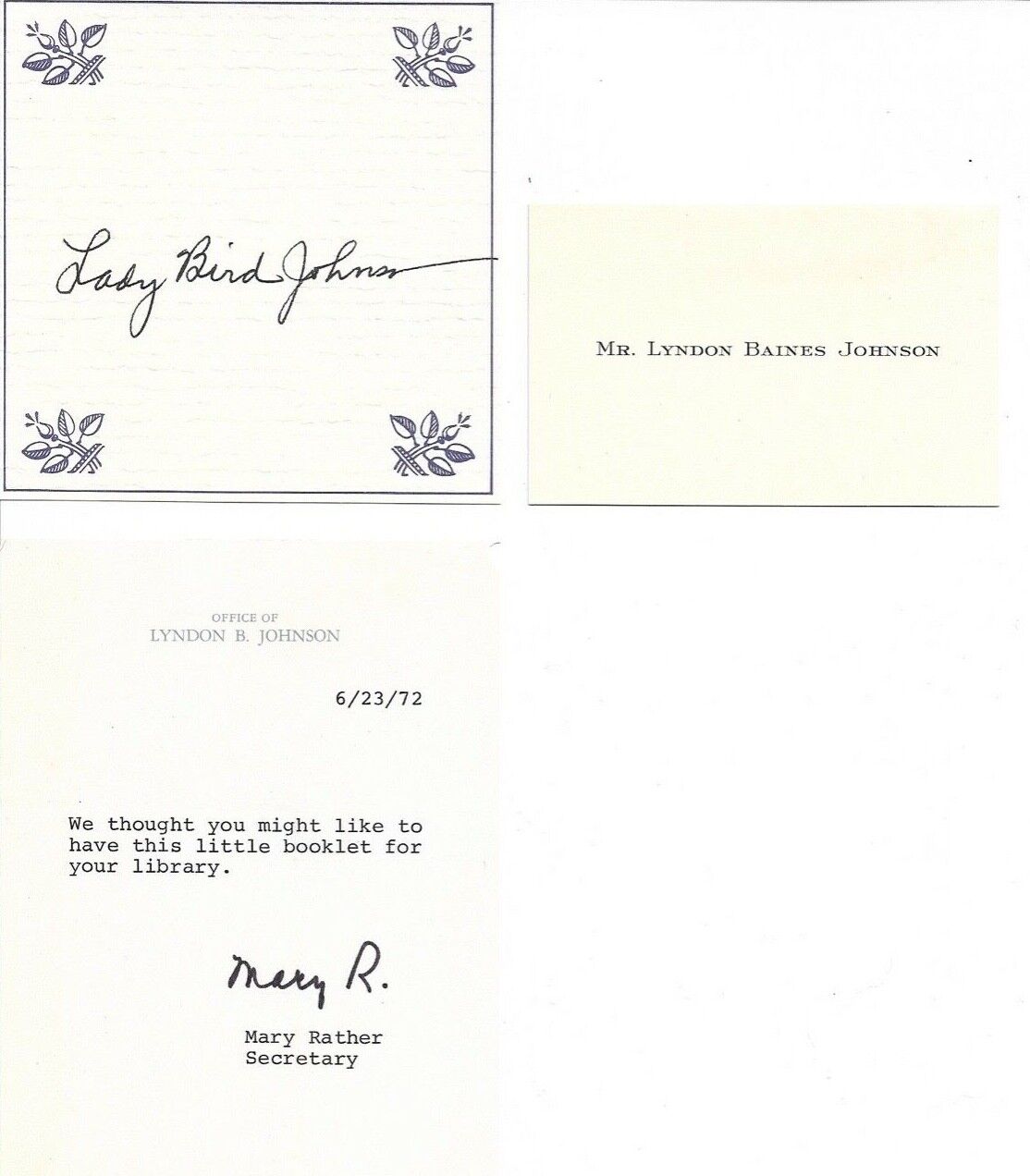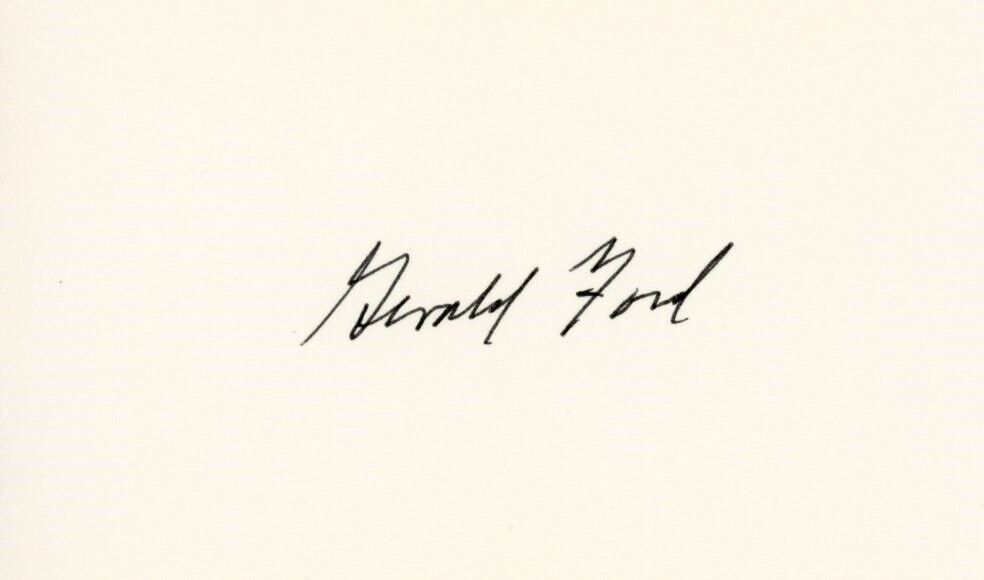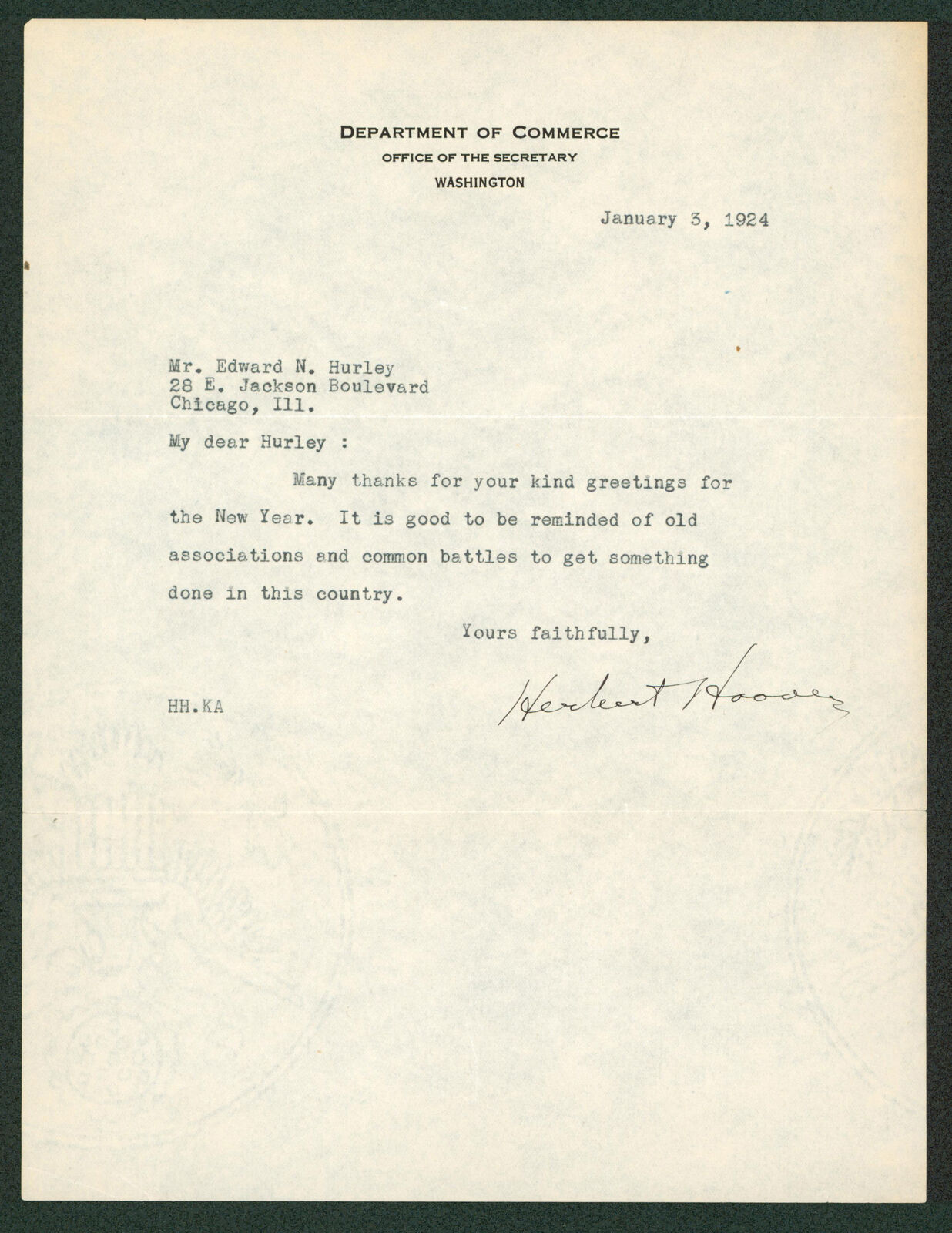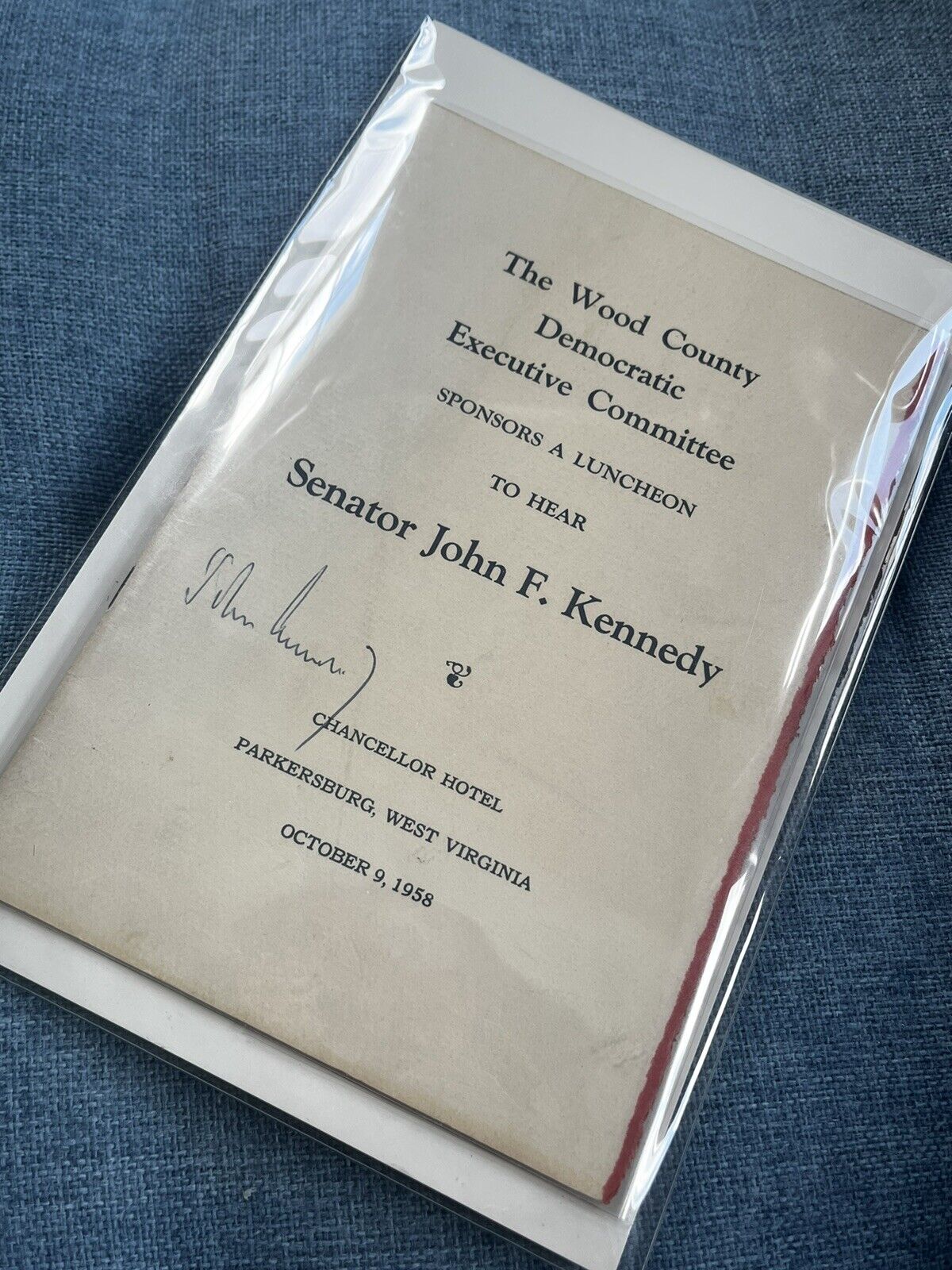-40%
1824 Land Grant Signed President James Monroe +Little Rock Arkansas Imprint 1826
$ 381.4
- Description
- Size Guide
Description
1824 PARTLY PRINTED DOCUMENT ON VELLUM SIGNED BY PRESIDENT JAMES MONROE GRANTING 160 ACRES OF LAND IN THE TERRITORY OF ARKANSAS TO JAMES BUTT FOR SERVICE IN THE WAR OF 1812.Accompanied by:
Partly printed document completed in manuscript giving James Russell power of attorney to sell the land.
Manuscript document dated May 11, 1826, transferring ownership of the land from Butt to Sylvanus Phillips (for whom Phillips County, Arkansas is named) for 5.
Partly printed document (1820's Little Rock imprint) completed in manuscript September 1, 1826, recording the transaction.
The land grant is beautifully and archivally framed to museum standards and under 99% UV Protection Acrylic.
Shipping Anywhere In The United States Media Mail ; International Shipping
Please Note: We are happy to accept all forms of payment. Everything we sell is Returnable for any reason. We only ask for prompt notification, within 14 days.
We generally do try to "combine shipping" when you purchase more than one item--except in cases of large lots or very heavy shipments. ON INTERNATIONAL ORDERS, WE DO REFUND ON OVERCHARGES!! Don't hesitate to ask for more info/detail on any of our listings. HOFFMAN BOOKS, ABAA, IOBA
James Monroe
From Wikipedia, the free encyclopedia
Jump to navigation
Jump to search
James Monroe
Portrait by
Samuel Morse
,
c.
1819
[
clarification needed
]
5th
President of the United States
In office
March 4, 1817 – March 4, 1825
Vice President
Daniel D. Tompkins
Preceded by
James Madison
Succeeded by
John Quincy Adams
7th
United States Secretary of State
In office
April 6, 1811 – March 4, 1817
President
James Madison
Preceded by
Robert Smith
Succeeded by
John Quincy Adams
8th
United States Secretary of War
In office
September 27, 1814 – March 2, 1815
President
James Madison
Preceded by
John Armstrong Jr.
Succeeded by
Alexander Dallas
(
acting
)
12th and 16th
Governor of Virginia
In office
January 16, 1811 – April 2, 1811
Preceded by
George W. Smith
(
acting
)
Succeeded by
George W. Smith
In office
December 28, 1799 – December 1, 1802
Preceded by
James Wood
Succeeded by
John Page
4th
United States Minister to the United Kingdom
In office
August 17, 1803 – October 7, 1807
President
Thomas Jefferson
Preceded by
Rufus King
Succeeded by
William Pinkney
5th
United States Minister to France
In office
August 15, 1794 – December 9, 1796
President
George Washington
Preceded by
Gouverneur Morris
Succeeded by
Charles Cotesworth Pinckney
United States Senator
from
Virginia
In office
November 9, 1790 – May 27, 1794
Preceded by
John Walker
Succeeded by
Stevens Thomson Mason
Delegate from
Virginia
to the
Congress of the Confederation
In office
November 3, 1783 – November 7, 1786
Preceded by
Constituency established
Succeeded by
Henry Lee III
Personal details
Born
April 28, 1758
Monroe Hall
,
Virginia
,
British America
Died
July 4, 1831 (aged 73)
New York City
, U.S.
Cause of death
Tuberculosis
Resting place
Hollywood Cemetery
Political party
Democratic-Republican
Spouse(s)
Elizabeth Kortright
(
m.
1786
; died
1830
)
Children
3, including
Eliza
and
Maria
Education
College of William & Mary
Occupation
Politician
lawyer
Signature
Military service
Branch/service
Continental Army
Virginia Militia
Years of service
1775–1777 (Army)
1777–1780 (Militia)
Rank
Major
(Army)
Colonel
(Militia)
Battles/wars
American Revolutionary War
Battle of Trenton
(
WIA
)
James Monroe
(
/
m
ə
n
ˈ
r
oʊ
/
; April 28, 1758 – July 4, 1831) was an American statesman, lawyer, diplomat and
Founding Father
who served as the 5th
president of the United States
from 1817 to 1825. A member of the
Democratic-Republican Party
, Monroe was the last president of the
Virginia dynasty
and the
Republican Generation
;
his presidency
coincided with the
Era of Good Feelings
, concluding the
First Party System
era of American politics. He is perhaps best known for issuing the
Monroe Doctrine
, a policy of opposing European colonialism in the
Americas
while effectively asserting U.S. dominance, empire, and hegemony in the hemisphere. He also served as governor of
Virginia
, a member of the
United States Senate
, U.S. ambassador to
France
and
Britain
, the 7th
Secretary of State
, and the 8th
Secretary of War
.
Born into a slave-owning planter family in
Westmoreland County
,
Virginia
, Monroe served in the
Continental Army
during the
American Revolutionary War
. After studying law under
Thomas Jefferson
from 1780 to 1783, he served as a
delegate
in the
Continental Congress
. As a delegate to the
Virginia Ratifying Convention
, Monroe opposed the ratification of the
United States Constitution
. In 1790, he won election to the
Senate
, where he became a leader of the Democratic-Republican Party. He left the Senate in 1794 to serve as President
George Washington
's ambassador to France but was recalled by Washington in 1796. Monroe won the election as
Governor of Virginia
in 1799 and strongly supported Jefferson's candidacy in the
1800 presidential election
.
As President Jefferson's special envoy, Monroe helped negotiate the
Louisiana Purchase
, through which the United States nearly doubled in size. Monroe fell out with his longtime friend
James Madison
after Madison rejected the
Monroe–Pinkney Treaty
that Monroe negotiated with Britain. He unsuccessfully challenged Madison for the Democratic-Republican nomination in the
1808 presidential election
, but in 1811 he joined Madison's administration as Secretary of State. During the later stages of the
War of 1812
, Monroe simultaneously served as Madison's Secretary of State and Secretary of War. His wartime leadership established him as Madison's heir apparent, and he easily defeated
Federalist
candidate
Rufus King
in the
1816 presidential election
.
Monroe's presidency was concurrent with the
Era of Good Feelings
. The Federalist Party collapsed as a national political force during his tenure and Monroe was re-elected, virtually unopposed, in
1820
. As president, Monroe signed the
Missouri Compromise
, which admitted Missouri as a
slave state
and banned slavery from territories north of the 36°30′ parallel. In foreign affairs, Monroe and Secretary of State
John Quincy Adams
favored a policy of conciliation with Britain and a policy of expansionism against the
Spanish Empire
. In the 1819
Adams–Onís Treaty
with Spain, the United States secured
Florida
and established its western border with
New Spain
. In 1823, Monroe announced the United States' opposition to any European intervention in the
recently independent countries
of the Americas with the Monroe Doctrine, which became a landmark in American foreign policy. Monroe was a member of the
American Colonization Society
, which supported the colonization of Africa by freed
slaves
, and
Liberia
's capital of
Monrovia
is named in his honor.
Following his retirement in 1825, Monroe was plagued by financial difficulties, and died on July 4, 1831, in
New York City
— sharing a distinction with Presidents
John Adams
and Thomas Jefferson of dying on the
anniversary of U.S independence
. He has been
generally ranked
as an above-average president by historians.
